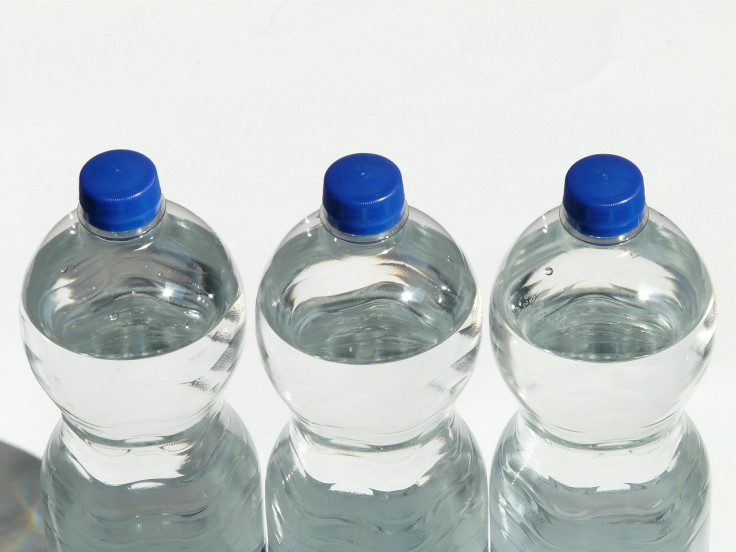Know What You Drink: Study Says One Liter Of Bottled Water Contains 240,000 Plastic Particles

Bottled water is perceived as a cleaner and safer alternative to tap water. But, have you ever considered the amount of micro-nano plastics you ingest with it? A person consumes around 240,000 tiny plastic particles from one liter of bottled water, a new study has revealed.
Microplastics are tiny plastic particles (1 µm to 5 mm in length) that form during the manufacturing of commercial products and breaking down of larger plastics. They are considered harmful to the environment and health.
While microplastics are known to be omnipresent in our daily lives – found in the food we eat and the water we drink, estimating their presence in our surroundings remains challenging due to their minuscule size.
To address this issue, researchers from Columbia and Rutgers universities developed a novel imaging technique that helped them to determine the quantity of microplastics in bottled water.
The team used a microscope with dual lasers to detect microparticles. Using machine learning, they identified seven types of plastic molecules in a sample of three different types of bottled water.
The estimated levels of microplastics were two to three orders of magnitude more than previously reported. The findings were published in the Proceedings of the National Academy of Sciences.
"Micro-nano plastics concentrations were estimated to be about 2.4 ± 1.3 × 105 particles per liter of bottled water, about 90% of which are nanoplastics," the researchers wrote.
Nanoplastics are tinier plastic particles (<1 μm), which are believed to be more toxic.
"Whatever microplastic is doing to human health, I will say nanoplastics are going to be more dangerous," said Wei Min, a study author.
Researchers cautioned that they still need more studies to determine how microplastics affect health.
"That's currently under review. We don't know if it's dangerous or how dangerous. We do know that they are getting into the tissues (of mammals, including people) … and the current research is looking at what they're doing in the cells," said study co-author Phoebe Stapleton.
Meanwhile, the International Bottled Water Association pointed out that there is no scientific consensus on the health impacts of microplastics.
"There currently is both a lack of standardized (measuring) methods and no scientific consensus on the potential health impacts of nano- and microplastic particles. Therefore, media reports about these particles in drinking water do nothing more than unnecessarily scare consumers," it said in a statement.



























